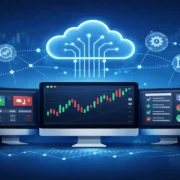All other things being equal, technology in hospitality will hasten the decision-making process and enhance guest experience in a more data-driven environment. Business Intelligence (BI) tools seem to place hotels, resorts, and travel agencies in a position to derive useful information from complex data.
From analysing guest preferences to optimising revenue strategies, BI tools enable hospitality professionals to make informed choices that boost performance and profitability. For businesses navigating post-pandemic recovery and growing competition, adopting a robust BI solution is no longer optional—it’s essential.
What Is a Business Intelligence Tool?
A business intelligence tool allows for data collection, analysis, and presentation that will assist strategic and operational decisions. In hospitality, BI tools usually gather data from PMS, booking platforms, reviews, POS, and so on.
Popular BI solutions such as Microsoft Power BI, Tableau, and industry-specific tools like OTA Insight or Duetto allow hoteliers to create interactive dashboards and reports that track performance metrics in real-time.
Why BI Matters in Hospitality
A hospitality enterprise sees huge amounts of data being generated every day: reservations, customer feedback, point-of-sale terminals, and online travel agents. Without a centralised system for interpreting such data, some key growth and efficiency opportunities may go by.
Here’s how BI tools create value in hospitality:
- Revenue Management: BI tools help to measure KPIs such as average daily rate (ADR), occupancy, and RevPAR. By analysing historical data together with future demand, hoteliers can work on pricing strategies to increase earnings.
- Guest Experience: Understanding guest behaviour is of utmost significance. BI platforms analyse and interpret every booking pattern, preferred amenity, and satisfaction survey trend to enable personalised services and targeted marketing.
- Operational Efficiency: BI dashboards offer transparency with regard to housekeeping, inventory, and staff performance. This can contribute to minimising waste, optimising scheduling processes, and ensuring smooth operational flow.
- Competitive Benchmarking: Many BI tools may carry market intelligence features whereby they can compare performance against competitors and hence give insight into rate positioning and demand forecasting.
Real-World Applications
Picture a mid-level resort chain with multiple properties in Southeast Asia. With such a BI tool, management can watch the real-time data streams from all locations through a central dashboard, identify which properties are performing poorly, pivot marketing campaigns, adjust staffing levels, and forecast seasonal trends—all in one place.
The boutique hotel is another example—it’s involved in analysing guest sentiments from online reviews. A BI tool would take this data and project contrasting trends across time, whereby the hotel could take responsive measures toward feedback and provide services of superior quality.
Choosing the BI Tool
Some factors to consider when selecting a business intelligence tool for hospitality are:
- Integration capacity with property management systems
- Ease of use, especially for non-technical folks.
- Customisation of dashboards and reports.
- Real-Time Analytics ensures prompt actions.
Embrace the Future of Hospitality
Gone are the days when people mostly made decisions based on instinct, with a highly competitive market. Hotel chains can use guest intelligence to create better experiences for the guests, ensure smooth operations, and maintain the edge over the competition. Your data stands to be an opportunity; do not throw it away. Work with your hotel team to begin converting insights into real solutions.










Comments